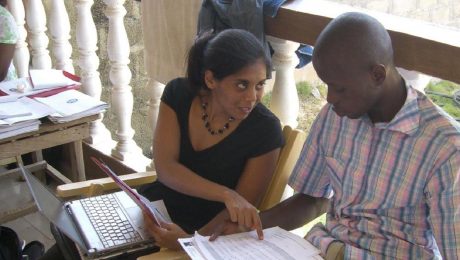Prior undernutrition and insulin production several years later in Tanzanian adults.
Filteau S, PrayGod G, Rehman AM, Peck R, Jeremiah K, Krogh-Madsen R, Faurholt-Jepsen D.
Am J Clin Nutr. 2021 Jun 1;113(6):1600-1608.
DOI: 10.1093/ajcn/nqaa438.
PMID: 33740034;
PMCID: PMC8168356.
Cervicovaginal bacterial communities in reproductive-aged Tanzanian women with Schistosoma mansoni, Schistosoma haematobium, or without schistosome infection.
Bullington BW, Lee M, Mlingi J, Paul N, Aristide C, Fontana E, Littmann E, Mukerebe C, Shigella P, Kashangaki P, Kalluvya SE, de Dood CJ, van Dam G, Corstjens PLAM, Fitzgerald DW, Pamer EG, Downs JA.
ISME J 2021; 15(5): 1539-50.
DOI: 10.1038/s41396-020-00868-9.
PMID: 33408370;
PMCID: PMC8115289
Hypertension: Do inflammation and immunity hold the key to solving this epidemic?
Madhur MS, Elijovich F, Alexander MR, Pitzer A, Ishimwe J, Van Beusecum JP, Patrick DM, Smart CD, Kleyman TR, Kingery J, Peck RN, Laffer CL, Kirabo A.
Circ Res. 2021 Apr 2;128(7):908-933.
DOI: 10.1161/CIRCRESAHA.121.318052.
PMID: 33793336;
PMCID: PMC8023750
The burden of HIV, syphilis and schistosome infection and associated factors among adults in the fishing communities in northwestern Tanzania.
Kapiga S, Hansen CH, Downs JA, Sichalwe S, Hashim R, Mngara J, van Dam GJ, Corstjens PLAM, Kingery JR, Peck RN, Grosskurth H.
Trop Med Int Health. 2021 Feb;26(2):204-213.
DOI: 10.1111/tmi.13520. Epub 2020 Dec 2.
PMID: 33159819
Continued HPV vaccination in the face of unexpected challenges: A commentary on the rationale for an extended interval two-dose schedule.
Whitworth HS, Schiller J, Markowitz LE, Jit M, Brisson M, Simpson E, Watson-Jones D.
Vaccine.2021 Feb 5;39(6):871-875.
DOI: 10.1016/j.vaccine.2020.12.031. Epub 2021 Jan 13.
PMID: 33451778.
In-flight transmission of SARS-CoV-2.
Choi EM, Chu DKW, Cheng PKC, Tsang DNC, Peiris M, Bausch DG, Poon LLM, Watson-Jones D.
Emerg Infect Dis. 2020 Nov;26(11):2713-2716.
PMID: 32946370
PMCID: PMC7588512
Learning from people with HIV: Their insights are critical to our response to the intersecting COVID-19 and HIV pandemics in Africa.
Aristide C, Okello S, Bwana M, Siedner MJ, Peck RN.
AIDS Behav. 2020 Dec;24(12):3295-3298.
DOI: 10.1007/s10461-020-02955-6. PubMed
PMID: 32607916; PubMed Central
PMCID: PMC7325644.
Nocturnal dipping of heart rate and blood pressure in people with HIV in Tanzania.
Nolan C, Reis K, Fadhil S, Etyang A, Ezeomah C, Kingery JR, Desderius B, Lee MH, Kapiga S, Peck RN.
PMID: 34080288.
DOI: 10.1111/jch.14300.
Does the number of doses matter? A qualitative study of HPV vaccination acceptability nested in a dose reduction trial in Tanzania.
Mitchell KR, Erio T, Whitworth HS, Marwerwe G, Changalucha J, Baisley K, Lacey CJ, Hayes R, de SanJosé S, Watson-Jones D.
PMID: 34051389
PMCID: PMC8233223
Background
Gender-based violence is prevalent globally.
It occurs in many forms, including intimate partner violence, rape and coerced sex, child sexual abuse, and human trafficking. Such forms of gender-based violence are significant risk factors for poor health, impacting on individuals’ physical, sexual and psychological health, as well as their social and economic well-being.
Evidence from rigorously conducted research is essential to ensuring that policies and services to prevent and respond to violence are well-designed and appropriate to the context where women, children, adolescents and men live. Conducting action-oriented research on gender-based violence that is robust and carried out in ethical and safe ways requires specific methodological approaches.
The course
This course aims to strengthen participants’ knowledge and skills to conduct or commission technically rigorous, ethical and policy- and service-relevant research on various forms of violence against women, children and adolescents.
It is intended for individuals who will conduct or commission research on gender-based violence. It will be of particular interest to those who want to add a ‘violence component’ to a study that is quantitative or qualitative or an intervention evaluation.
It is relevant for individuals working on health-related topics such as sexual and reproductive health, maternal health, HIV, mental health and substance use.
The course will be taught through a series of online interactive lectures, practical exercises, group work and assigned reading.
Course content
The course will cover topics including:
- Conceptualising and researching various forms of gender-based violence
- Associations between violence and health: current knowledge
- Ethics and safety
- Approaches to researching violence: qualitative, quantitative, mixed methods, intervention research
- Developing conceptual frameworks for violence and health research
- Survey research on violence and questionnaire design
- Intervention research: approaches and challenges
- Violence research in health care settings
- Violence research in humanitarian settings
Key information
Course Organisers:
Dr Karen Devries, Dr Cathy Zimmerman and Dr Ana Maria Buller
The course will also feature lectures from Prof Charlotte Watts and visiting staff from other universities.
Duration: 17-28 May 2021
Fees for 2021: £850
Contact email: shortcourses@lshtm.ac.uk
Find out more and apply: www.lshtm.ac.uk/study/short-courses/gender-violence




